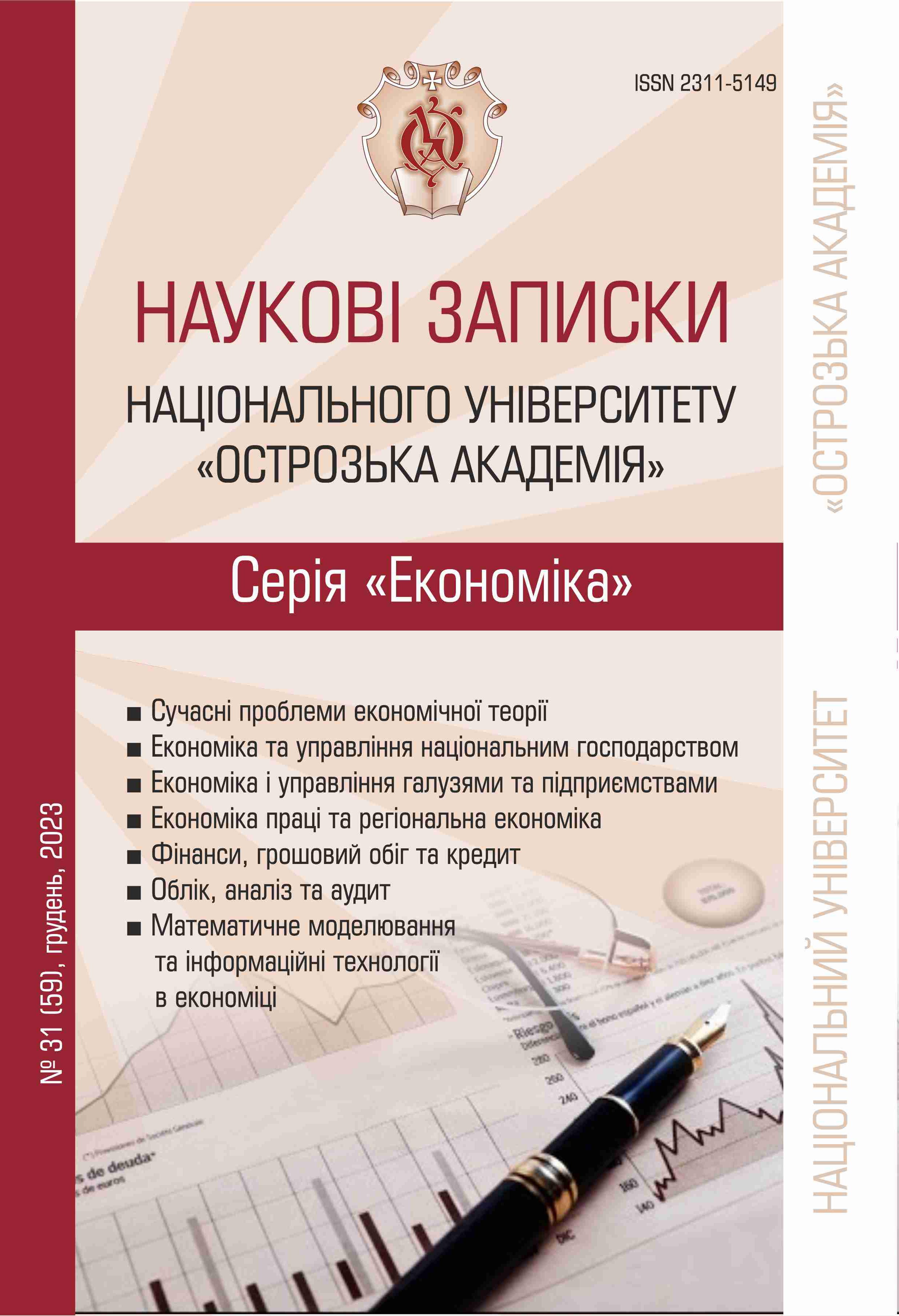MODERN FORMS OF UKRAINE’S COOPERATION WITH INTERNATIONAL FINANCIAL INSTITUTIONS
DOI:
https://doi.org/10.25264/2311-5149-2023-31(59)-62-69Keywords:
forms of Ukraine’s cooperation with international financial institutions (IFSs), lending, сredit resources, long-term investment projects, international technical assistanceAbstract
In this article, the importance of modern forms of Ukraine’s cooperation with international financial institutions (IFSs) is discussed. The author systematised IFIs by classification criteria and looked into the main forms of financial cooperation between the government of Ukraine and IFIs. The analysis indicates that in today’s global economic system, the most common form of cooperation between governments and IFIs lies in lending. The structural and dynamic analysis of the forms of financial assistance from IFIs to Ukraine also confirmed this. The analysis of the cooperation between the Ukrainian government and IFIs also confirmed that loans from IFIs are the main source of long-term financing for socio-economic development projects in Ukraine’s priority sectors. Additionally, the author analyses the aspects of Ukraine’s cooperation with the IMF, the World Bank Group, and the IBRD, and identifies the areas of use of credit and investment resources in 2020-2023. Hence, the borrowed credit resources received by Ukraine from the IMF are used to service external debt, finance the budget deficit and deficits in the balance of payments and trade. In times of crisis for Ukraine’s economy, the IMF’s loans help replenish the NBU’s foreign exchange reserves, maintain the stability of the national currency, and optimize the monetary policy of the National Bank of Ukraine which stimulates lending to the real economy. Ukraine used the loan resources from the IFIs of the World Bank Group to cover the budget deficit, to implement institutional and structural reforms as well as long-term investment projects. The author also defines the importance and role of international technical assistance in the framework of Ukraine’s cooperation with IFIs, proving that international technical assistance is provided to Ukraine on a free and non-refundable basis by donor countries and international institutions. In conclusion, the author underlines the expected risks and necessity of this cooperation.


